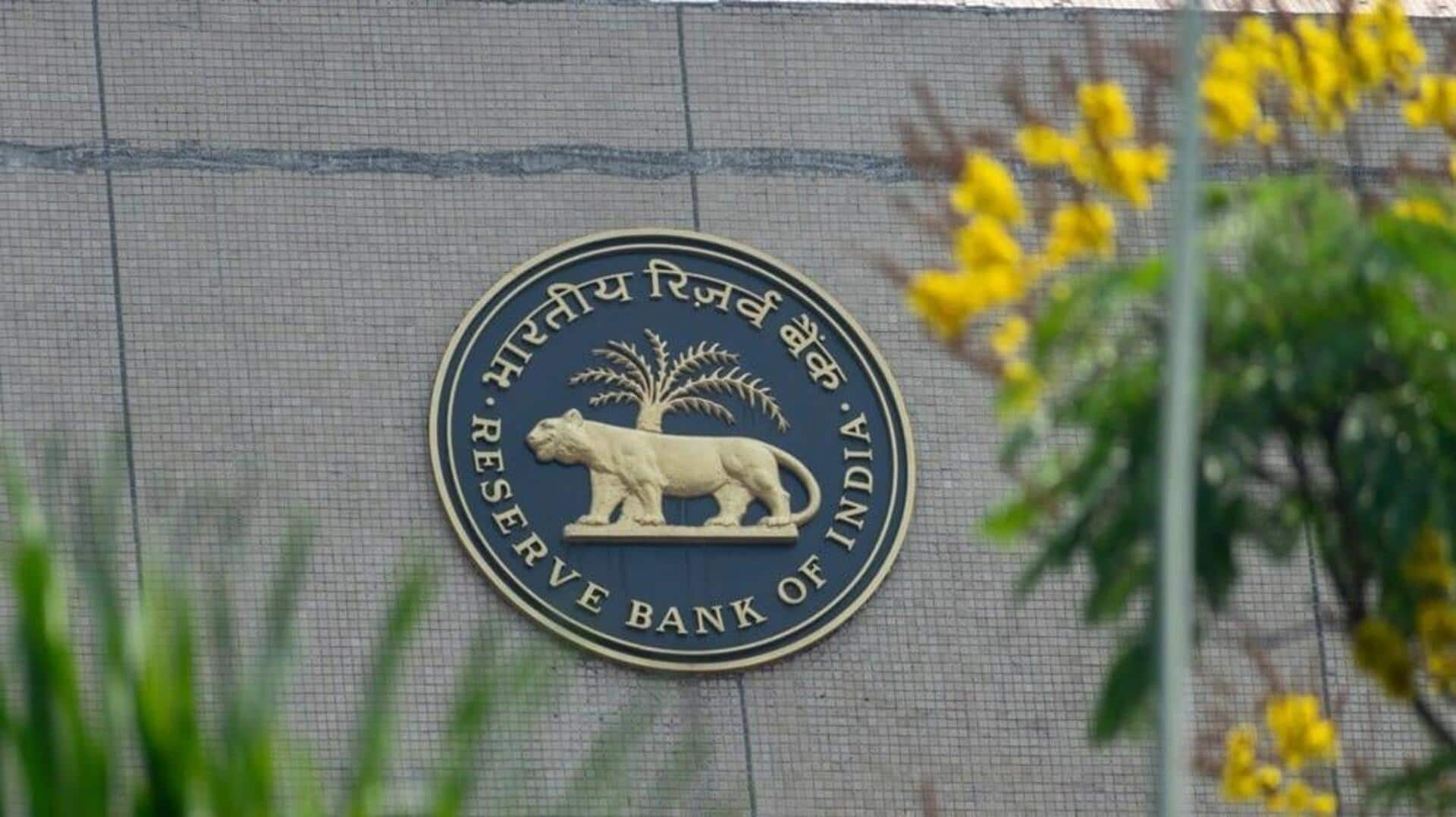
RBI to inject ₹2.5L crore into banking system: Here's why
What's the story
The Reserve Bank of India (RBI) will inject a record ₹2.5 trillion (nearly $29 billion) into the country's banking system through an overnight variable rate repo auction.
This will be the largest single-day infusion in over a year.
The move follows the central bank's aggressive intervention in the foreign exchange (FX) market over the last few trading sessions, to support the struggling rupee.
Market dynamics
Liquidity deficit and forex intervention
The liquidity deficit in India's banking system has skyrocketed to nearly ₹2 trillion as of February 10, a fourfold increase in a week's time.
Market experts have attributed the spike to tax outflows and the RBI's aggressive dollar sales. To strengthen the rupee, the central bank sold between $4 billion and $7 billion on Monday.
The large-scale liquidity injection aims to ensure adequate funds are available for banks to meet credit demand and support economic activity.
Currency fluctuation
RBI's forex reserves and rupee depreciation
Data shows the RBI's forex reserves have plummeted by more than $75 billion since September 27, 2024.
During this time, the Indian rupee fell from 83.70 against the US dollar on September 27, to 87.96 against the greenback on February 10.
This fall has been associated with portfolio outflows and uncertainty over US trade tariffs, further emphasizing the woes of India's banking system.
Strategic moves
RBI's open market operation and liquidity management
In light of the liquidity deficit, the RBI has announced it will double its security purchases under the next tranche of open market operation on February 13.
The central bank will buy government securities worth ₹40,000 crore, instead of the previously announced ₹20,000 crore.
This is part of a broader strategy to manage liquidity conditions in India's banking system amid these challenging times.
Monetary policy
RBI's rate cut and bond yield impact
Last Friday, the RBI cut its key interest rate by 25 basis points to boost the sluggish economy.
However, no liquidity-enhancing measures were announced at the time, resulting in a spike in bond yields.
RBI Governor Sanjay Malhotra assured that the central bank would continue to monitor liquidity and financial market conditions closely, taking proactive steps as needed to maintain orderly liquidity conditions.